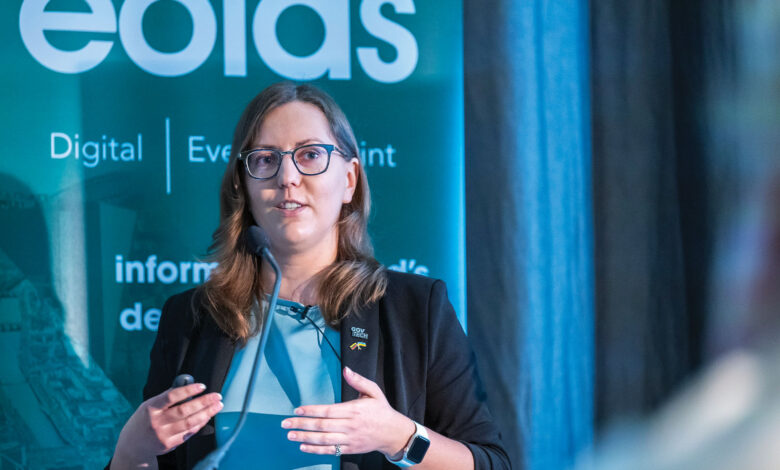Exploratory innovation within the public sector

Strategic Partnerships Lead of GovTech Lab Lithuania, Kamilla Gasinska, highlights how innovative companies and the public sector can work together to build GovTech solutions.
With the pace of new technologies increasing, thus causing increased citizen expectations on the public sector, Gasinska explains how GovTech Lab Lithuania has successfully ran over 97 projects to adapt and modernise the public sector through exploratory innovation.
Contextualising the need for modernisation within the public sector, Gasinska believes that collaboration with innovative companies is key to the public sector delivering during challenging times and crises. Pointing to crises such as the Covid-19 pandemic and the ongoing conflict in Ukraine, she states that consistent development and modernisation are key to create innovative solutions during unprecedented global challenges.
GovTech Lab Lithuania, established in 2019, is a part of Lithuania’s Innovation Agency under the Ministry for Economy and Innovation. Through its successful experience in creating innovative GovTech solutions, the organisation has produced a process called the GovTech Challenge Series; a “structured innovation process that facilitates cooperation between the public sector and startups/innovative companies to build digital solutions that solve government’s challenges”.
GovTech Challenge Series
Gasinska outlines how the process is successfully implemented in Lithuania to produce exploratory innovation. “At the very beginning, we have an open call to look into the current challenges within the public sector. It could be within a ministry or an agency, or it can be in a library, school, or hospital. At the start of this process, we are gathering all of those problems and selecting the most pressing ones.”
The second stage, aims to address the specific problem within the public sector and transform it into an innovative challenge that will “spark the creativity, innovation, and interest of the start-up community”. At this second stage, Gasinska states GovTech Lab Lithuania is also helping to prepare the public sector for innovative procurement.
Stage three, focuses on procurement within the process. Gasinska outlines that during this stage, a design contest is used to produce further creativity within the innovative companies. Gasinska states: “At this stage, you rate the idea and not the team,” and explains further, “if the idea is great, you can pitch prices for the best ideas and encourage the small teams. Then, you are collaborating with an innovative pilot with the best team and the best idea that you have selected.”
The next stage is called “pilot development”, where considerations are made for the public sector team and the start-up team through team-building exercises. This process typically entails three-to-six months of cooperating on the creation of the pilot solution.
“The public sector is learning about how start-ups work, and at the same time, the private sector is learning how the public sector works.
“From the very beginning, we have been helping the public sector with expertise, with templates for procurement, and with workshops. GovTech Lab Lithuania host workshops with the private sector on how to take part in the procurement. We try to help and guide them through this process,” she says.
Through this process, Gasinska highlights that the private sector in return is further educated on “how the public sector works, why the processes are so long, what the actual bureaucracy means, and why it is there”. Furthermore, the process encourages the companies to apply for other public procurements because they can “understand the mindset of the public sector,” according to Gasinska. Due to this, the public sector is more flexible after running this process.
Successful collaborations
To explicate the success of this strategy, Gasinska illustrates challenges that were solved when involving the GovTech Lab Lithuania through collaboration with Lithuania’s public sector and start-up companies, including a project which aimed to make the internet safer for children by automatically detecting illegal content, a collaboration that integrated forest cover monitoring using advanced algorithms, and a solution to automate data collection from market participants necessary for supervision.
“One thing that we are focusing on is pilot solutions. The public sector is normally willing to go for the big budget into full-scale solutions. Here, we are asking them to stop for half a year to see if the solution they are looking for is the solution that is needed.”
Gasinska outlines that the complete process takes around nine months before the organisation is selected. Furthermore, the projects are run in batches rather than case-by-case.
“Projects are coming together from diverse backgrounds and different cities. In this way, they can learn from each other because some have faced similar problems previously. Due to this, both parties can share their experience along the way.”
Progressing digital government
Gasinska outlines that GovTech Lab Lithuania provide funding for experimentation, professional support and operate on common values to ensure that everyone is “on the same page”.
Through the utilisation and collaboration of start-up companies to further modernise and transform the public sector, Gasinska concludes exploratory innovation within GovTech solutions is crucial to produce a progressive digital government in short- and long-term timescales.





